151 years ago today, a team of like-minded artists put on Paris’ First Impressionist Exhibition. Rejected by the Paris Salon, the artists took their work to No.35 Boulevard des Capucines, the studio of the famous photographer Nadar. Once there, an art critic and satirist called it the “Impressionist Exhibition” leading to the birth of the movement’s name, and fame. Led by the sagely Camille Pissarro, the exhibitors included Renoir, Monet, Manet, Degas, and others. SEE the exhibition’s works… (1874)

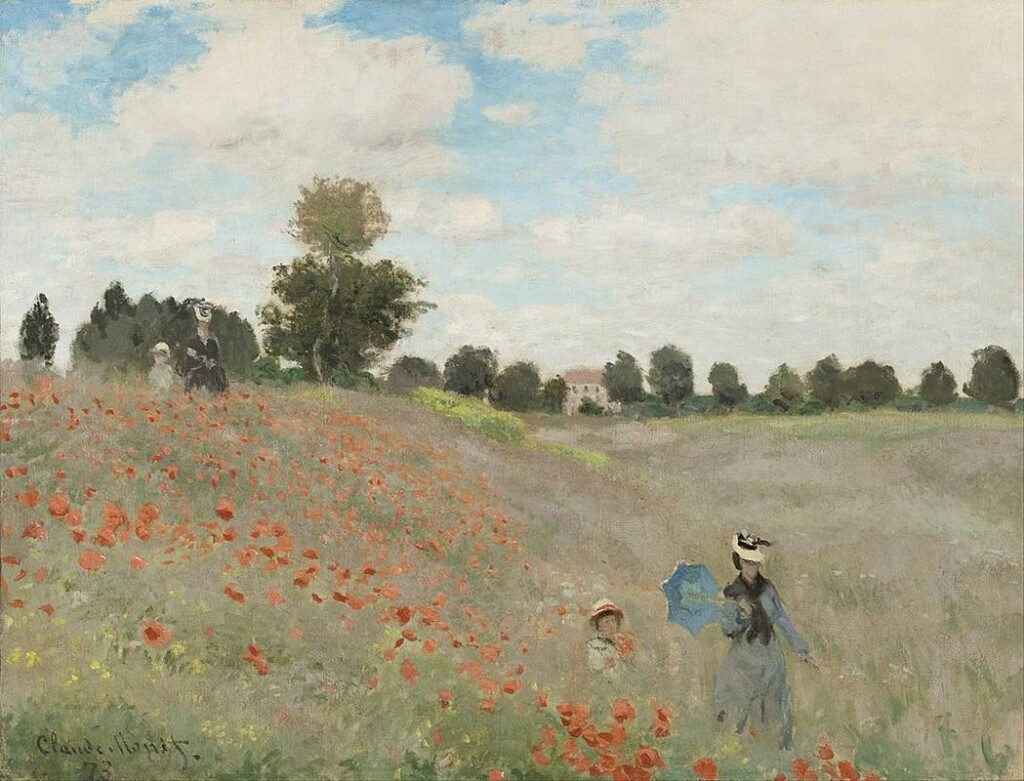
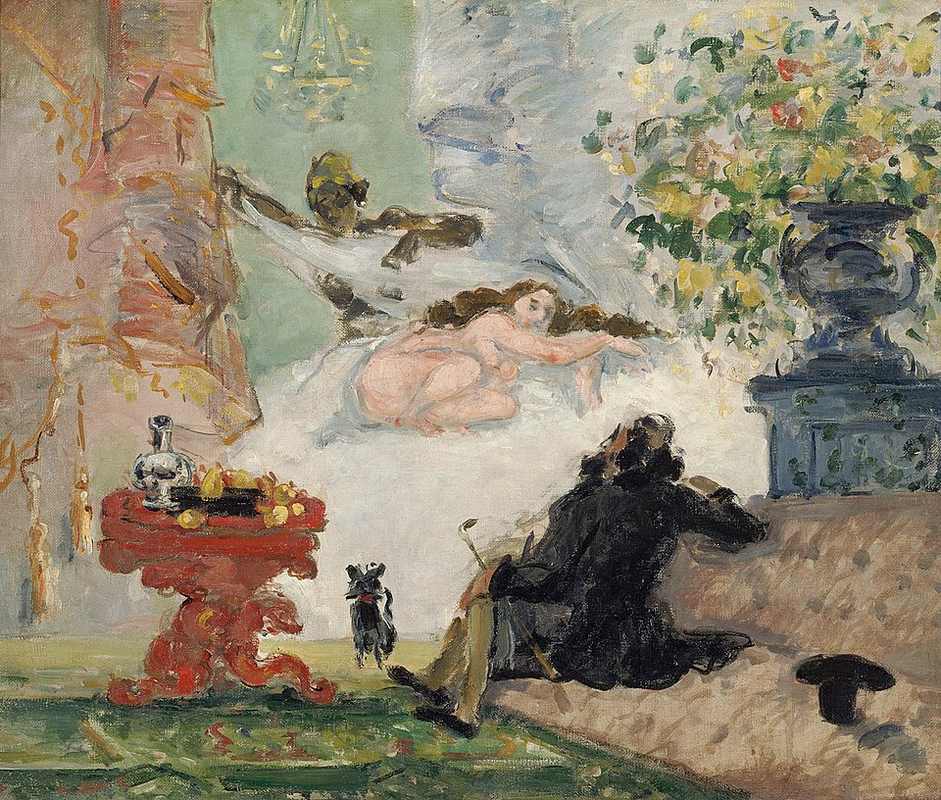

MORE Good News on this Date:
- Guru Nanak, the founder and first guru of Sikhism who first displayed his spiritual understanding to teachers at age 7, was born (1469)
- Johann S. Bach’s Matthew’s Passion premiered in Leipzig (1729)
- Thomas Gallaudet, and deaf Frenchman Laurent Clerc, opened the first American school for the deaf (1817)
- The city of San Francisco was incorporated (1850)
- British and Canadian troops liberated the Nazi concentration camp Bergen-Belsen (1945)
137 years ago today, Corrie ten Boom was born in Haarlem. A Dutch watchmaker and later a Christian writer and public speaker, ten Boom assisted her father Casper and sister Betise to help many Jewish residents of the Netherlands escape the Nazis. Eventually, she was caught and imprisoned in the Ravensbrück concentration camp. Her most famous book, The Hiding Place, is a biography that recounts the story of her family’s efforts and how she found and shared hope in God while she was imprisoned.
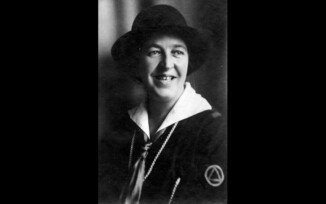
The refugee work which ten Boom and her sister were doing became known by the Dutch Resistance, which sent an architect to their home to build a secret hiding place: a false wall in Corrie’s bedroom that could hold six people. A ventilation system was installed for the occupants, and a buzzer could be heard in the house to warn the refugees to get into the room as quickly as possible.
On 28 February 1944, a Dutch informant, Jan Vogel, told the Nazis about the ten Booms’ work. At around 12:30 p.m. on that day, the Nazis arrested the entire ten Boom family. They were sent to Scheveningen Prison when Resistance materials and extra ration cards were found at the home. The group of six people hidden behind the wall, made up of both Jews and resistance workers, remained undiscovered. Though the house was under constant surveillance after ten Boom’s arrest, police officers who were also members of the resistance group coordinated the refugees’ escape. (1892)
287 years ago today, George Frideric Handel’s finest opera, Xerxes, debuted in London. The opening aria of the opera, Ombra Mai Fu, featuring the king of the Achaemenid Persian Empire, Xerxes, singing a thank you to the plane tree in his garden, has become one of the most practiced repertoire pieces. It has become so iconic that it’s become known as “Handel’s Largo,” which in Italian opera jargon essentially means the slow motif of Handel.
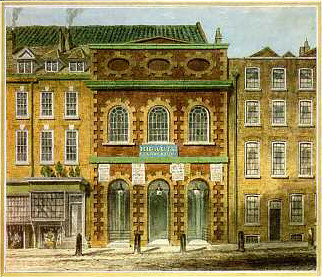
Xerxes disappeared for more than a hundred years from popular performance until it was revived in the Inter-War Period in Germany.
The role of Xerxes has been played by both men and women because it was originally performed by a castrato, or castrated singer; a practice which stopped more than 100 years ago, but which allowed men to sing in women’s registry. Today it’s sung by male countertenors or female mezzo-sopranos. In any case, Dimitri Hvorostovsky has shown that the opera is equally beautiful, if not more so, in the baritone register. (1738)
78 years ago today, years before the Civil Rights Movement gained prominence in the news, Jackie Robinson broke baseball’s color barrier becoming the first black player on any Major League Baseball team, debuting at first base for the Brooklyn Dodgers. “It represented both the dream and the fear of equal opportunity, and it would change forever the complexion of the game and the attitudes of Americans,” wrote Pete Levine.
His talent earned him the Most Valuable Player award in the league two years later. In that fateful game, Robinson went hitless but did score the winning run.

When Dodgers Manager Bill Rickey called up Robinson for his first game, he knew that for what he would represent, Robinson had to play the game enduring racial epithets and flying cleats, of hate letters and death threats, of pitchers throwing at his head and legs, and catchers spitting on his shoes. A shorthand version of the conversation was reported on by EPSN.
Rickey: “I know you’re a good ballplayer. What I don’t know is whether you have the guts.”
Robinson: “Mr. Rickey, are you looking for a Negro who is afraid to fight back?”
Rickey, exploding: “Robinson, I’m looking for a ballplayer with guts enough not to fight back.”
Like John Barnes in English football, Robinson took an entire culture by the hand, and with his human grace and stunning athletic performances, helped it up a few more steps toward the city on the hill.
Every year on April 15, Jackie Robinson Day is honored across the nation with every major league player wearing a #42 jersey. The Ken Burns documentary, Jackie Robinson, debuted on April 11, 2016, on PBS stations. (1947)
121 years ago today, the Carnegie Hero Fund’s governing Deed of Trust was adopted. The Carnegie Hero Fund recognizes those who perform extraordinary acts of heroism in civilian life, and provides financial assistance to the survivors of those killed or disabled in the act of attempting to save others. It was set up with a trust fund of $5 million in Pittsburgh, Pennsylvania, by the Scottish-American industrialist and philanthropist Andrew Carnegie.
Carnegie was inspired by Selwyn Taylor and Daniel Lyle, who gave their lives in rescue attempts following the explosion at the local Harwick Mine, which claimed 181 lives, including Taylor and Lyle, who were killed while rescuing the only survivor. Greatly touched by their sacrifice, Carnegie had medals privately minted for their wives and children, and within two months he wrote the Hero Fund’s governing Deed of Trust.
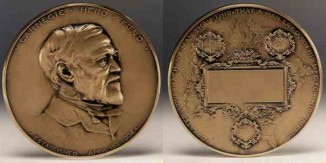
Since then, more than 10,000 Carnegie Medals have been awarded, with the Fund paying $40.5 million in grants, scholarships, death benefits, and other aid. About one-quarter of the bronze medals have been given to heroes who died in the service of others. A verse from the Gospel of John encircles the outer edge of the medal: “Greater love hath no man than this, that a man lay down his life for his friends” (or, more saliently, to strangers).
Carnegie expanded his concept to honor heroes beyond North American—to nine European countries. SEE the requirements to nominate a hero… (1904)
The organization receives each year about 800 nominations, and about 11 percent will receive notification of their submission and awards. Here are the requirements.
573 years ago today, Leonardo da Vinci, the artist, inventor, polymath, musician, and architect who painted the Mona Lisa and The Last Supper, was born. Leonardo kept notebooks — 3,500 pages of drawings, engineering designs, and scientific notations — and much of it was written backward, so that it could only be legible when held up to a mirror. (1452)
Also, 65 years ago today, Ella Baker led a meeting at Shaw University in Raleigh, North Carolina that resulted in the creation of the Student Nonviolent Coordinating Committee, which became a driving force for whites and blacks in the Civil Rights Movement of the 1960s.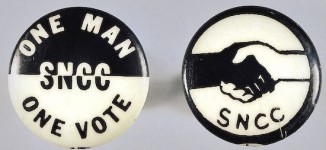
SNCC (“snick”) attracted many supporters in the North who helped raise funds to pay salaries for SNCC’s activists across the South. The group played a major role in the sit-ins, freedom rides, and the 1963 March on Washington, demonstrating that ordinary women and men, young and old, could create extraordinary change. (1960)
Happy 66th Birthday to the beloved British actress, writer, and comedian Emma Thompson. She won two Academy Awards (the only person ever to win both)—one for Best Actor for the 1992 film Howards End, and another for Best Adapted Screenplay for her script Sense and Sensibility in 1995, which she also starred in. Her other film credits include The Remains of the Day, In the Name of the Father (both earned her Oscar nominations), Saving Mr. Banks, Much Ado about Nothing, Nanny McPhee, Love Actually, and Stranger than Fiction (with Will Farrell).

Thompson herself was the first female member of the sketch comedy troupe ‘Footlights’ at Newnham College. Though she started out doing stand-up comedy, she became one of Britain’s finest actors. Dame Emma Thompson was awarded an order of the queen when she turned 60.
“I’ll tell you what I think is interesting about 60,” she said on The Ellen DeGeneres Show two years ago. “All the roles that have been imposed upon you by society since you were born, from gender roles to mom, whatever they are, start to sort of fray at the edges… I have never really asked, because I always thought it was a bit lame, but ‘Who am I, actually?’ I think this decade will be fascinating.”
She’s also written several books adapted from The Tale of Peter Rabbit. WATCH the trailer for her 2020 film Late Night… (1959)
SHARE the Milestones, Memories, and Music…




















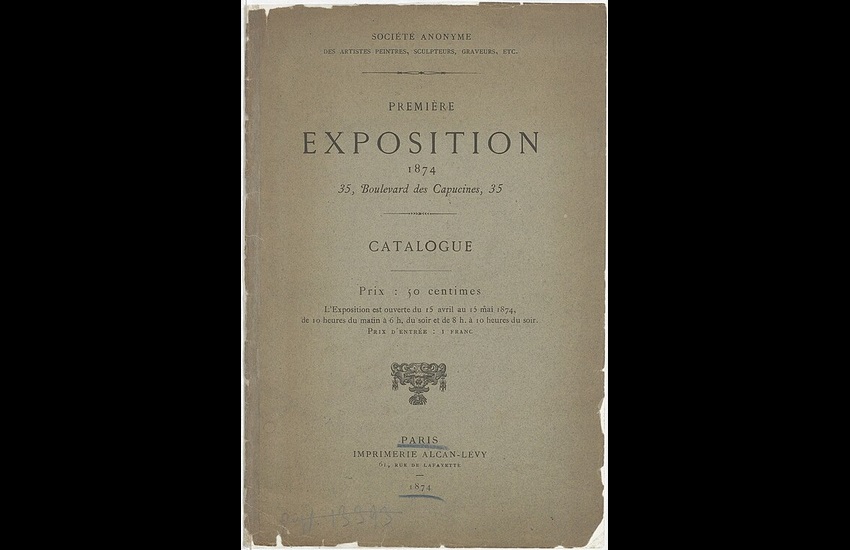
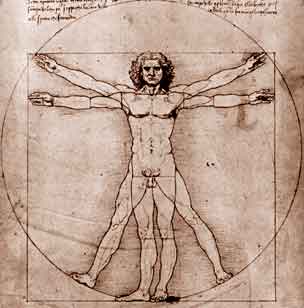
One other important good thing that happened on this day was in 1947 when Jackie Robinson broke the color barrier in major league baseball. Given how race relations are still a problem in our society, it’s important to remember these kinds of things.